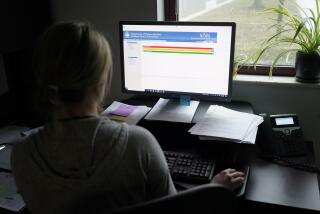The Waiting Heart
In January, I officially became qualified to be a foster mother after receiving my certificate to board. The document must be posted in a prominent spot in my home, along with my emergency disaster and house floor plans.
I learned to be a foster parent at a private children’s agency, among many such agencies contracted by the Los Angeles County Department of Children and Family Services to train foster parents and place children. It took me nearly a year to earn the certificate. I attended classes on attachment and bonding, the effects of physical and sexual abuse, supporting birth-family connections, developmental delays and transracial adoptions. I learned how to deal with African American skin and hair. I learned CPR, water safety and first aid. I took classes on anger management and discipline techniques, on temper tantrums and reflective listening, on special-needs children and drug exposure.
Eleven months later, I still don’t have a foster child.
I spent more than $2,000 safety-proofing my house. I installed a new gate to my already enclosed pool. I bought fire-escape ladders. I put magnet locks on cupboards, deadbolts and sliding locks on doors. I added a metal gate to a door leading to the patio. I bought lock boxes in which to store medicines and detergents; I moved my kitchen knives to an inconvenient, out-of-the-way place and locked them up.
A social worker interviewed me and my five children. I’ve talked to my kids about a foster child in the home and what their roles would be. Our house was tested for safety -- again and again. I conducted fire-safety drills with my children. Friends and relatives wrote recommendations on my parenting skills. I was fingerprinted for a background criminal check. Because county regulations forbid my 17-year-old honor student from baby-sitting a foster child, even if I left on just a brief errand, I lined up potential baby-sitters, who also were fingerprinted for background checks.
You may ask why a single mother of five children would want to adopt another child or become a foster parent. Well, I’ve acted, directed theater and films, written a novel and a screenplay. I own and manage an apartment building. But mothering may be my best talent. One of my two oldest children went to Brown University, the other to UC Berkeley. My three youngest are still at home, which is why I want to work at home. My 14-year-old daughter is also an honor student, and both girls are in student government. My 11-year-old son is an avid reader and good chess player. I’m fortunate to have a large, four-bedroom house in an upscale neighborhood. I have an extended family and lots of friends who support the idea of my having foster children. I have the experience and resources to be a good foster mother.
I have taken in children informally. One of them, a foster child, went to and from middle school with my eldest son. Each day the boy stayed a little longer at our house until he started spending school nights and then weekends with us. His foster father was apparently far from ideal, and the county eventually ended the placement. Today, the boy is a man and calls me his godmother.
After six months without a foster child, I was puzzled and frustrated. The head of the private agency that trained me paid a visit to explain that many of the children coming from the Department of Children and Family Services had behavioral problems that might negatively affect my children. I’d stipulated that I wouldn’t take any kids who might sexually act out or pose a physical threat to my children. She also said that because most foster children were siblings, the department wanted to place them together. I’d specified that I wanted a boy between 5 and 10. I’d also agreed to take temporary placements, since, I was told, they were most needed. In the hope of improving my chances of getting a foster child, I agreed to take two children if necessary.
After several more months, my social worker called about a boy and a girl. The boy had no control over his bowels and bladder because of a medical problem, and his sister was “overprotective” toward him. Still, I agreed to take them and prepared the house. I bought suitable clothes and toys. An hour before their scheduled arrival, I got a call. They were going to be placed in a home where they had stayed previously.
Soon after, there was another call about siblings who were in a permanent home. Their foster father was going to have an operation and needed “respite care” for the children. Respite care is relief for foster families. The concept perplexes me, because if I had a serious health problem, I couldn’t imagine sending my children to strangers. Yet, I agreed to take the children, who were described as “very difficult and not socialized.” But, as before, other arrangements were made for them.
A spokesperson for the Department of Children and Family Services tells me that 40% of the beds available for foster children are empty.
Meanwhile, I’m instructed to keep my kitchen knives, medicines and detergents locked away in case my house is randomly inspected. Under new county rules, my social worker inspects my house every three months. I’m supposed to attend continuing education classes to collect hours so I can maintain my certification as a foster parent.
A letter arrived from my agency today.
It thanked me for “the hearts and lives” I’ve touched and for the “ways I continue to give to the children in my care.”


